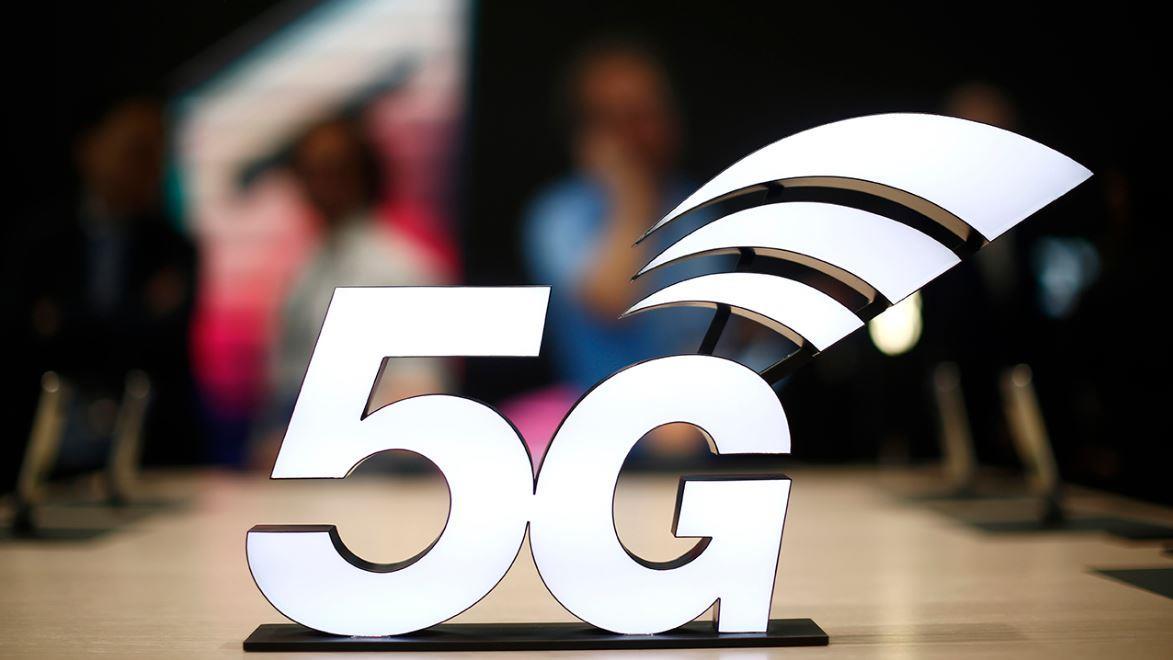Steve Forbes: Getting to 5G first matters – winning the race could depend on a speedy FCC C-Band auction
There’s no guarantee that the U.S. will lead the world in 5G as it did in 4G
Critical for keeping the American economy strong and growing in the new decade is our winning the race to 5G. And Federal Communications Commission Chairman Ajit Pai can ensure we get off to a quick start in that competition by taking swift action to repurpose the portion of wireless spectrum called the C-Band.
Business is going to change radically in the 2020s as 5G – the rapidly-approaching fifth generation of wireless service – makes developing technologies such as self-driving vehicles, drones, smart devices, and the Internet of Things (IoT) fully functional.
5G GIVES BUSINESS AN EDGE: VERIZON CEO
The capabilities the superfast, super-powerful 5G network will make possible will be especially important for small businesses, the companies that constitute over 99 percent of U.S. employer firms and create nearly two-thirds of all new jobs.
But there’s no guarantee that the U.S. will lead the world in 5G as it did in 4G: Several of our international competitors, particularly China, aggressively pursuing 5G dominance.
It is hardly an overstatement to say that the country that wins the race to 5G will have the inside track on becoming the world’s most competitive and prosperous economy.
American wireless providers face an exceptionally difficult challenge from the Chinese firm Huawei, the largest telecom company in the world. That giant has the total backing of its government, reportedly receiving some $75 billion in state support over the last few years.
Getting to 5G first matters. It is hardly an overstatement to say that the country that wins the race to 5G will have the inside track on becoming the world’s most competitive and prosperous economy.
The new applications of 5G wireless technology and the interconnection of devices (there will be roughly 1.3 billion connections on 5G networks in just the next three years) will revolutionize business and radically change the way we do everything from health care to national defense.
By 2035, 5G will produce an estimated $13.2 trillion in global economic output, supporting 22.3 million new jobs. Chairman Pai cannot let America lose out on the economic and quality-of-life advantages 5G will provide: His legacy will hinge on it.
A major obstacle to 5G deployment is the lack of sufficient spectrum available for wireless use. There is a big section of bandwidth that would be perfect for 5G development, the midrange known as the C-Band. While we need a mix of low, mid, and high-band spectrum, this “Goldilocks spectrum” in the middle is of particular interest because of its unique properties and, importantly, because it’s where the rest of the world is deploying their 5G networks.
SENATORS INTRODUCE $1B PLAN TO STEP UP AMERICA'S 5G GAME
The Global mobile Suppliers Association (GSA) has identified 23 countries that have already “auctioned or allocated C-Band spectrum with the intention of opening up the frequency range for mobile broadband and 5G usage.”
Before the C-Band can be utilized for 5G in the U.S., however, it must be transferred to wireless providers from the satellite companies who currently control it. This will be done through a government auction run by the FCC.
To ensure that happens in a timely manner, the incentives for the satellite companies to move off of the spectrum must be right and the FCC must establish workable auction rules.
Satellite companies have invested billions of dollars in their C-Band networks and deserve to be compensated for the cost of clearing the spectrum and for the business risks and new investments associated with the transition. Appropriate compensation for satellite companies is the fair thing to do and will significantly accelerate the clearing process.
Congress is already at work to help speed that process with a bill introduced in the Senate by Republican Senators Roger Wicker of Mississippi and John Thune of South Dakota. The proposed legislation outlines a framework for distributing auction proceeds and requires the FCC to hold the C-Band auction before the end of 2020.
GET FOX BUSINESS ON THE GO BY CLICKING HERE
That is a must-do task. If the U.S. does not at the very least begin the auction process this year, we could find ourselves at an insurmountable disadvantage in the global race to 5G.
Support from the White House and Congress is essential to accomplish this policy imperative, but ultimately Chairman Pai and his FCC are going to have to do the heavy lifting.
Lawmakers should approve the Senate bill without delay, but the FCC must drive this process by making the case and standing ready to move on the C-Band auction ASAP.
The United States gave the world the internet and spearheaded a revolution in mobile technology and communications. That’s because at crucial stages government consciously stepped out of the path of innovators and market forces. One result of the government not hindering 5G would be the creation of thousands of new small businesses and new opportunities for thousands more.
The New Year and new decade are teeming with bright prospects for American businesses. At the same time, as a new chapter in this revolution begins, there are formidable challenges to U.S. leadership.
Public officials must once again unleash the vast potential of the U.S. to meet these challenges and equip businesses with the 21st Century tools they need to compete and win. Foremost among those tools is 5G wireless and FCC chairman Pai and his commissioners must make its deployment and implementation their top priority.
Steve Forbes is Chairman and Editor-in-Chief of Forbes Media.
CLICK HERE TO READ MORE ON FOX BUSINESS




















